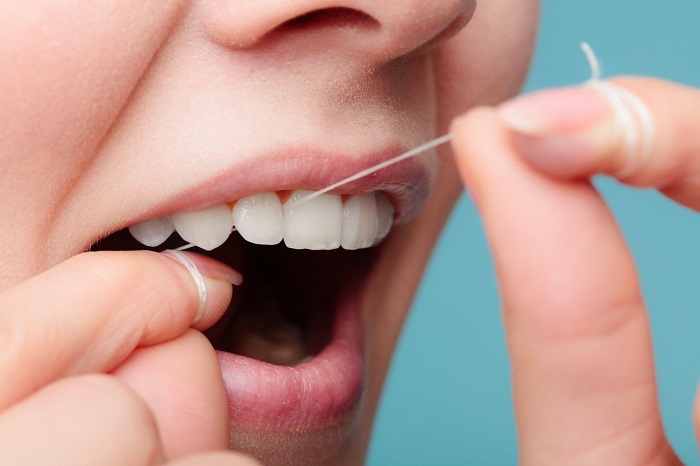Oral hygiene refers to the routine practice of cleaning your mouth using your toothbrush, toothpaste, and floss. Brushing your teeth and flossing keeps your smile looking and feeling its best, but flossing in particular will help your gums as well.
However, not everyone flosses every day as they should. This can put your gums in danger, so you should avoid periodontal concerns by flossing regularly and with purpose.
You can feel more encouraged to incorporate daily flossing into your routine when you better understand how this practice will enhance your gums. Read on to learn about three benefits you can notice in your gum health when you floss each day.

Reduce the Spread of Oral Bacteria
Your mouth contains natural bacteria, and these bacteria develop plaque, a film over your teeth, throughout the day. Bacteria poses a threat to both your teeth and gums, increasing your risk of oral infections.
We practice oral hygiene because brushing and flossing your teeth will get rid of plaque before it allows bacteria to reach the gums and deteriorate the tissue. An infection of this tissue, gum disease, can lead to irreversible damage that may even cause tooth loss.
Therefore, you should avoid contracting this infection in the first place with preventative care. Brushing your teeth alone may leave plaque and bacteria between the teeth that a toothbrush cannot reach. Flossing clears away this build-up to reduce the likelihood of gum disease and other dental dangers.
Prevent Uncomfortable Periodontal Symptoms
If you floss for the first time in a while, you might notice some bleeding from your gums. This occurs because a large amount of plaque and tartar have accumulated in this space between your teeth.
Disturbing the build-up will irritate the gum tissue and cause this bleeding. Our gums might also feel sore. But these symptoms should fade as you continue your flossing regimen.
Flossing on a regular basis prevents build-up between your teeth so that you do not experience discomfort in your gums during this practice. Therefore, you can avoid unpleasant periodontal symptoms when you stick to a good flossing routine.
Identify Gum Disease
Bleeding gums can happen for acute reasons, but if you notice this symptom occurring on a chronic basis, you might have gum disease. Bleeding, tenderness, swelling, and redness in the gums can manifest in gingivitis, the early phase of gum disease.
If you spot these issues in your smile, do not hesitate to tell your dentist. Gum disease is easier to treat when diagnosed early, so seek urgent periodontal attention. The infection does not go away on its own.
Dismissing periodontal symptoms may give the infection time to spread and worsen. Then you may require more intensive periodontal therapy to treat the problem, which can mean you spend more time and money. Pay attention to your oral health and attend routine dental appointments so that your dentist can screen you for gum disease and other problems.
